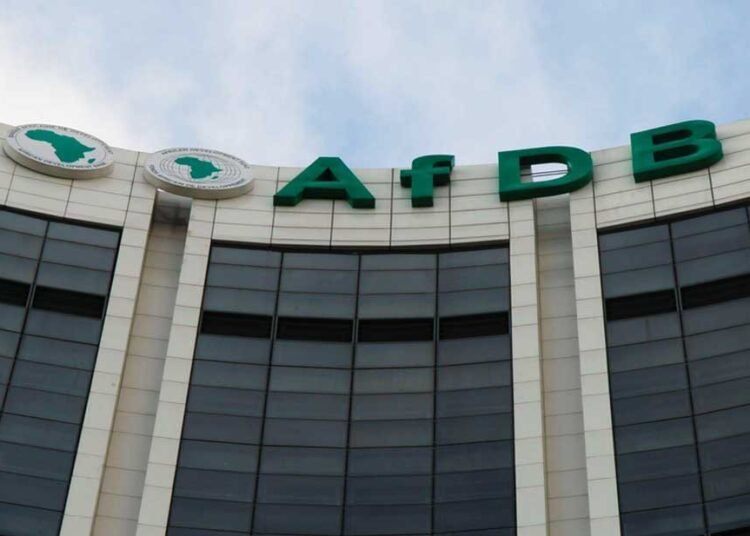Africa’s economic growth is showing signs of improvement but remains vulnerable to global shocks, according to the 2025 Macroeconomic Performance and Outlook (MEO) report released by the African Development Bank (AfDB)
Unveiled on the sidelines of the 38th Ordinary Session of the African Union Assembly in Addis Ababa, the report projects Africa’s real GDP growth to rise to 4.1 percent in 2025 and 4.4 percent in 2026. This acceleration is attributed to economic reforms, declining inflation, and improved fiscal and debt positions.
Despite this positive outlook, the report warns that the continent’s growth remains below the 7 percent threshold required for significant poverty reduction. Geopolitical tensions, structural weaknesses, climate-related disasters, and conflicts—particularly in the Sahel and the Horn of Africa—continue to pose major challenges. Africa’s average real GDP growth in 2024 is estimated at 3.2 percent, slightly up from 3.0 percent in 2023.
Declining Inflation and Fiscal Adjustments
The report indicates that inflationary pressures persist but are expected to ease. Africa’s average inflation rate is projected to decline from 18.6 percent in 2024 to 12.6 percent in 2025-2026 due to tighter monetary policies. Meanwhile, fiscal deficits, which widened slightly from 4.4 percent of GDP in 2023 to 4.6 percent in 2024, are anticipated to narrow to 4.1 percent by 2025-2026. Although public debt levels have stabilized, they remain above pre-pandemic levels, with nine African nations currently in debt distress and eleven at high risk of distress.
The MEO report, published biannually by the AfDB, provides timely economic data to aid policymakers, development partners, global investors, and researchers. This year’s edition identifies 24 African nations, including Djibouti, Niger, Rwanda, Senegal, and South Sudan, as on track to exceed 5 percent GDP growth in 2025. Africa remains the world’s second-fastest-growing region after Asia, with 12 of the 20 fastest-growing economies expected to be on the continent.
Calls for Policy Action
Ethiopia’s Finance Minister, Ato Ahmed Shide, lauded the report’s depth of analysis but stressed that Africa’s economic growth remains fragile. “It underscores the fragility of Africa’s economic growth, which is projected to hover around 4 percent in the near term,” Shide said, calling for proactive policies to sustain growth and stability.
He highlighted Ethiopia’s recent economic measures, including macroeconomic stabilization efforts, private sector empowerment, and fiscal discipline, as key to fostering resilience.
AfDB Vice President for Regional Development, Integration, and Business Delivery, Nnenna Nwabufo, emphasized the continent’s potential in driving global economic expansion. “As Africa navigates an increasingly complex economic landscape, policymakers must adopt a forward-looking approach to reinforce resilience and drive sustainable growth,” she said. Nwabufo represented AfDB President Dr. Akinwumi Adesina at the launch.
ALSO READ:MAHAMOUD ALI YOUSSOUF: A SEASONED DIPLOMAT LEADING THE AFRICAN UNION COMMISSION
Prof. Kevin Urama, the Bank Group’s Chief Economist and Vice President for Economic Governance & Knowledge Management, urged stronger coordination between monetary and fiscal policies to curb inflation while fostering economic expansion. He also advised African nations to strengthen foreign reserves, implement pre-emptive debt restructuring, and invest in integrated infrastructure to enhance economic diversification.
Strengthening Africa’s Financial Stability
Panel discussions following the report’s launch underscored the importance of implementing key continental initiatives such as the African Continental Free Trade Area (AfCFTA). Experts also examined new initiatives like the proposed Africa Credit Rating Agency and the African Financial Stability Mechanism.
Gambian Finance Minister Seedy Keita commended the AfDB’s support in implementing fiscal reforms and mobilizing domestic revenue. Meanwhile, African Union Trade Commissioner Albert Muchanga urged the private sector to increase investments in logistics and manufacturing to boost the AfCFTA’s success.
“What I would expect [African businesses] to do is come up with logistics centers and warehouses across Africa; I would also expect the African private sector to start planning to develop an African shipping line,” Muchanga stated. “We are sitting on potential; the business sector has not responded.”






























































